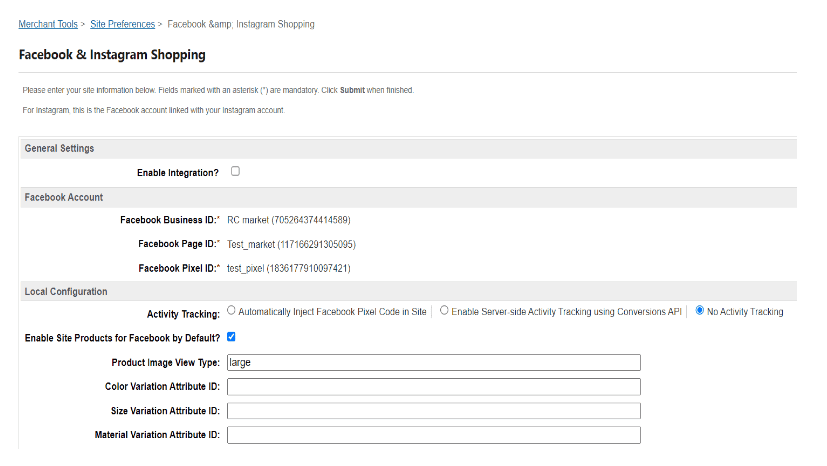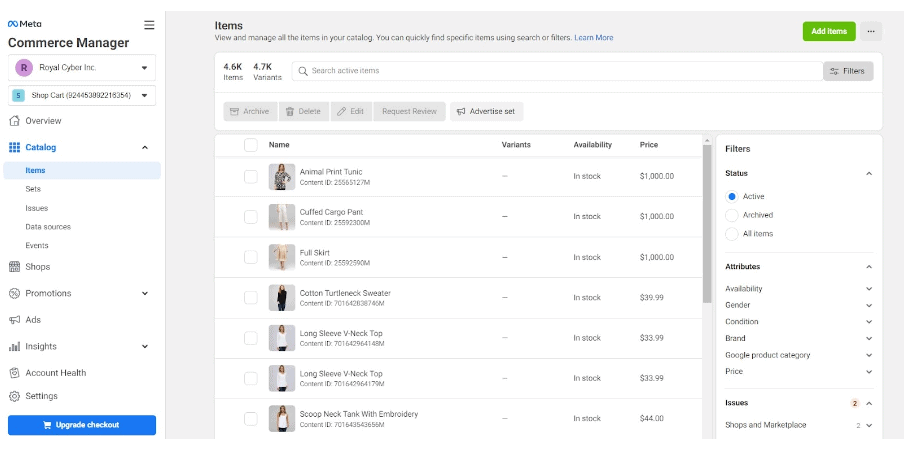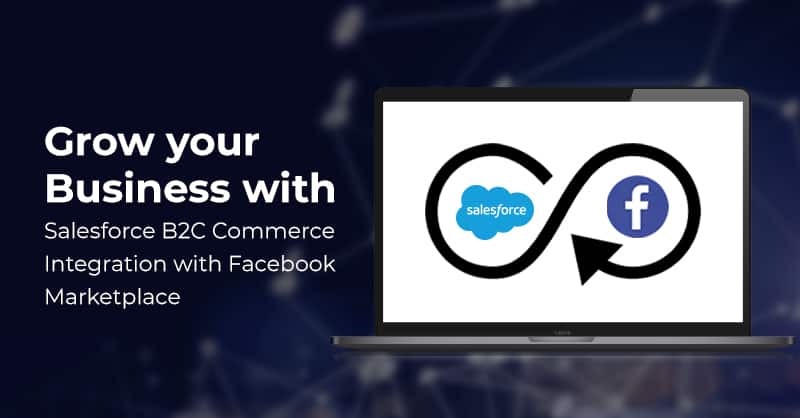Grow your Business with Salesforce B2C Commerce Integration with Facebook Marketplace

Written by Manpreet Kaur
Content Writer
May 22, 2023
By leveraging Salesforce B2C Commerce integration capabilities with Facebook Marketplace, you can create amazing opportunities to increase customer engagement and drive significant profit-growing ROI for your business.
In this blog, we’ll discuss how you can integrate Salesforce B2C Commerce with Facebook Marketplace to expand your customer reach and drive revenue growth using advanced sales strategies with one of the most used social-marketplace platforms.
What is Salesforce B2C Commerce - Facebook Marketplace Integration?
Salesforce integration with Facebook Marketplace allows businesses to connect their Salesforce B2C Commerce catalog with Facebook Marketplace. By integrating the two platforms, businesses can easily manage their product listings, keep them up-to-date with inventory and pricing information, and interact with customers directly on Facebook, thereby increasing customer engagement and driving revenue.
Integrating Salesforce B2C Commerce with Facebook Marketplace
To integrate Facebook Marketplace with Salesforce B2C Commerce, you must have a Facebook page and a Facebook Business Manager Account.
Follow the below steps to get it done:
- Create a Facebook Account and a Business Manager Account.
- Create an Account in Commerce Manager and create a catalog. Link the account to the Business Manager Account.
- Manage the setup pixel.
- Go to Site > Merchant Tools > Site Preferences > Facebook and Instagram Shopping.

- Click on “Continue with Facebook” and authorize it.
- Enable products for Facebook feed.

- Click Enable Integration, and then click Submit.

- Provide a feed ID (an arbitrary string). You’ll see a Run Now button.
- The catalog will be available in Facebook Commerce Manager. Create a Shop.

The integration offers two checkout options — Checkout on Facebook and Checkout on Website.
- Checkout on Facebook:This option enables shoppers to pay for products they want to buy directly on Facebook. It also reduces friction during checkout and helps to increase sales by displaying collections and making other products easily discoverable.
- Checkout on Website:This option allows shoppers to browse products on the Facebook shop and are re-directed to the Salesforce B2C Commerce website for payment processing.
Facebook’s Product Feed
When configuring Facebook’s product feed, it is essential to specify if you want to include the products on the website. However, you can add eligible products that fulfil the following criteria:
- The product can be accessed from the storefront.
- Base product or variation is enabled at the website level.
- The product is not a base product, product bundle, product set, or optional product.
Steps to Include or Remove a Product from the Product Feed
- Go to Site > Merchant Tools > Products and Catalogs > Products.
- Search for the product and select it.
- Click All Site Values to change the default value for this product.
- Choose the default product value for all sites.
- Deselect Use Default and select the value to change the default value for this product.
- Click Apply.
Users can also upload an empty Facebook catalog feed export file to Salesforce B2C Commerce, which happens when products are not enabled on Facebook. Invalid data, such as products without images, titles, or descriptions can be included in the feed export file. However, Facebook’s Business Manager displays the data missing and from which product. In addition, Facebook Feed export logs warn about missing product data.
Benefits of Integrating Salesforce B2C Commerce with Facebook
Reach a Wider Audience
By integrating Salesforce B2C Commerce with Facebook, businesses can tap into Facebook’s massive user base and reach a wider audience with their products, driving more traffic to their website and increasing sales.
Simplify Product Listing
With Salesforce B2C Commerce catalog integration with Facebook Marketplace, businesses can easily manage their product listings and periodically update with inventory and pricing information.
Improve Customer Engagement
Businesses can improve customer engagement by enabling them to interact with customers directly on Facebook, respond to their inquiries and feedback, and build relationships.
Simplify Checkout Processes
With two checkout options – Checkout on Facebook or Checkout on Website, offered by the integration, businesses can provide customers with a streamlined and unified checkout process, improving overall customer experience and reducing cart abandonment rates.
Conclusion
With Salesforce B2C Commerce’s Facebook Marketplace integration, access powerful consumer engagement strategies to boost your selling and order conversion. Users can manage customer relationships and streamline marketing efforts to drive focused sales strategies. To learn more about Salesforce B2C Commerce and its Facebook integration, contact Royal Cyber and talk to our experts. With the right support, experience and expertise in integrating these two platforms, we will help you unlock opportunities to sell products effectively and cost-efficiently.



